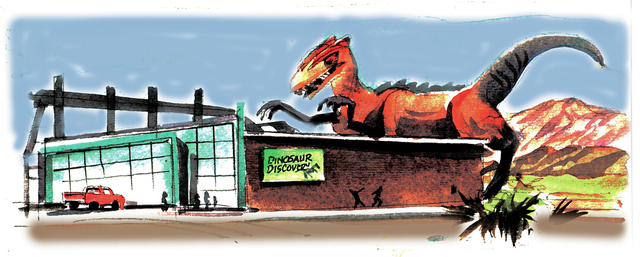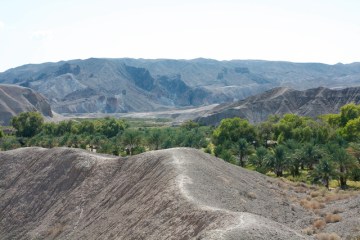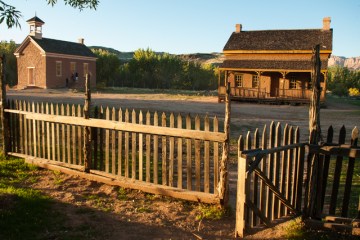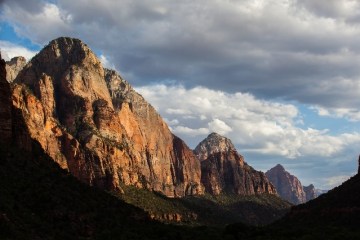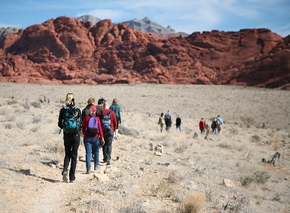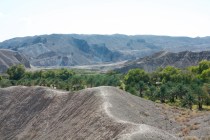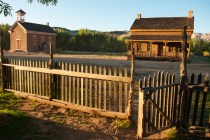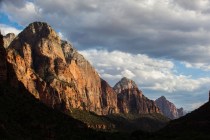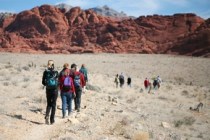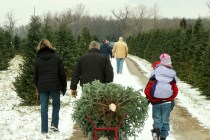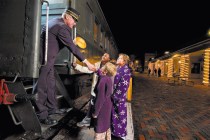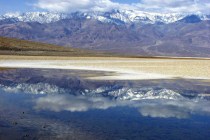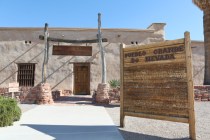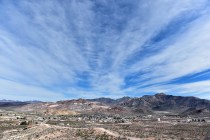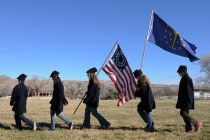Dinosaur tracks lead curious to St. George site
Southern Utah’s striking rock formations create vivid scenic desert landscapes that attract tourists, photographers and movie makers. Lately, they have also been attracting the attention of paleontologists.
The region’s eroded sandstone contains a rich fossil record from millions of years ago when dinosaurs thrived. Recent finds include tracks, imprints of skin and fossilized teeth of the ancient reptiles, as well as associated fish, shellfish, insects and plants.
A few large tracks of extinct creatures have long been known around St. George and elsewhere in Southern Utah. The accidental discovery of many more on the Johnson Farm near the Virgin River in 2000 led to more careful scrutiny. The site, not far from St. George’s historic downtown, is now recognized as the most significant dinosaur track site in North America and one of the 10 best in the world.
Experts are busy cataloging more fossil sites ahead of road construction and other building sites in rapidly developing Washington County around St. George. Known fossil sites have expanded from a handful of surface sites a few years ago to more than 600 sites. The more they look, the more they find.
St. George is about a two-hour drive from Las Vegas. Follow Interstate 15 north 120 miles. The farm, now called the St. George Dinosaur Discovery Site at the Johnson Farm, is east of town at 2180 E. Riverside Drive. Watch for directional signs or inquire at the Chamber of Commerce downtown or the regional interagency information center near the Bluff Street freeway exit. Information about more dinosaur track sites on area public lands is also available.
Visitors to the farm site get a glimpse into the time of the dinosaurs, nearly 200 million years ago, and see the scientific work in progress at the site. Now managed by a nonprofit foundation, the 10-acre farm has a glass and metal museum structure of 15,000 square feet and a parking lot large enough for the hundreds of daily visitors.
The farm owner, Dr. Sheldon Johnson, a local optometrist, discovered a slab of sandstone imprinted with a large track and its identical cast in a layer of rock he split while working with a tractor. He sought expert opinions on the discovery, which soon attracted curious visitors. More discoveries lay hidden in the rock layers at the farm. The Johnsons worked with local officials to preserve the site, provide for its interpretation by experts and develop its as a public museum.
Open since 2005, the museum operates all year. On its winter schedule through the end of this month, it is open Mondays through Saturdays from 10 a.m. to 5 p.m. and closed on Sundays. From March 1 to Sept. 30, the hours will be 10 a.m. to 6 p.m. Mondays through Saturdays and 11 a.m. to 5 p.m. on Sundays. Entrance costs $6 for adults and $3 for children ages 4 to 11. Children younger than 4 are admitted free.
Visitors may wander the farm acreage where fieldwork continues. The museum building includes displays of tracks and other artifacts found on the property, replicas of the types of creatures once found there and exhibits showing what the area looked like when dinosaurs left their tracks, including aquatic and terrestrial plants. The museum shop is well stocked with dinosaur toys and books as well as snacks and souvenirs.
The region was once well-watered and lush with vegetation. A variety of dinosaurs, mostly predators, walked on soft sand at the margins of a large body of water. One upright hunter squatted, leaving haunch and tail imprints and tracks of clawed forefeet. Others left imprints of their skin. The lake was home to fish and other aquatic creatures. The site has yielded fish fossils and swim tracks from the shallows. Silt or wind-blown sand filled the tracks and time turned the sand to sandstone, leaving casts of the tracks as well as the tracks themselves for later discovery.
Margo Bartlett Pesek’s column appears on Sundays.



